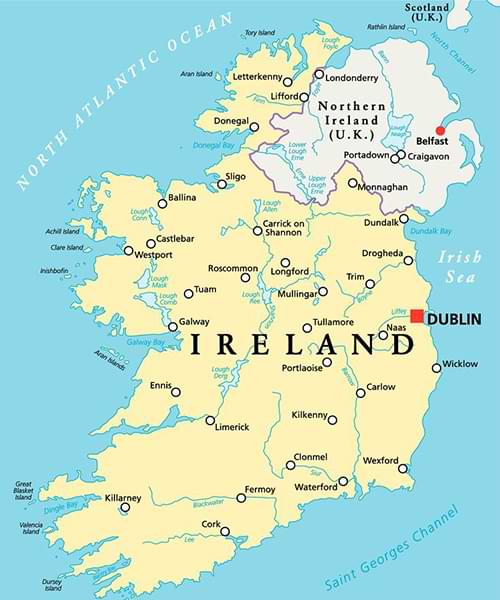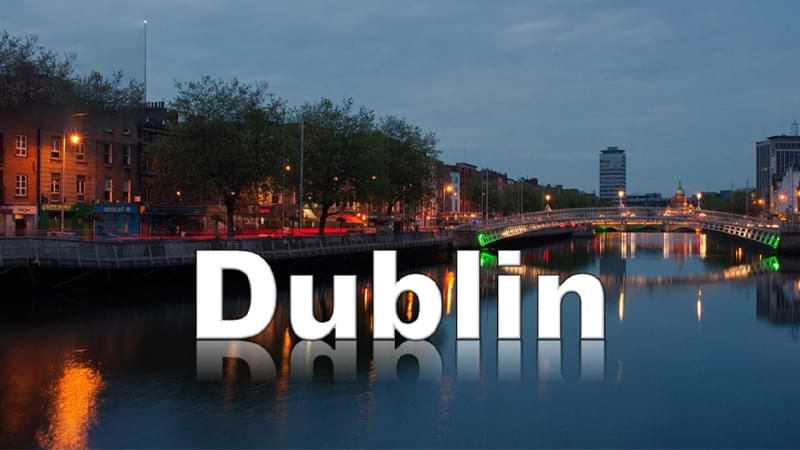Why Study in the Ireland?
Academic Excellence
Internationally recognized degrees
Affordable tuition fee
Vibrant campus life
Post study work
Safe & multicultural
Ireland Funny FACTS
Intakes
Almost all Irish institutes and universities offer two (2) major intakes also known as Semesters :
Semester 1 (September intake) - February-July
Semester 2 (January intake) - September-October
Application submission deadlines to apply varies from institute to institute in Ireland and our advice to students is to apply at least 3 to 4 months before the course start date.
Student Visas
All Indian citizens who want to study in Ireland to undertake a course of study for more than 3 months will need to obtain a student visa. The course must be full-time academic courses leading to major awards or equivalent at or above Level 7 of the National Framework of Qualifications of Ireland. In addition to this the course that you are going to pursue must be included in the Internationalisation Register administered by the National Qualifications Authority of Ireland (NQAI) (Visit www.nqai.ie for more information).
You can apply for a study visa up to 3 months before your date of travel to Ireland.
You must apply online for a visa via the department website.
After you have completed the online application process; you must follow the instructions on the summary application form that is created by the online system. The summary form will contain information on where you are to submit your supporting documentation. The summary form which you must print, sign and date must be submitted with your supporting documentation. You may be required to provide your Biometrics information as part of the application process.
The current visa fees for visas are:
Single entry €60
Multi entry €100
Transit €25
(This fee cannot be refunded if your application is refused or withdrawn)
You can pay it in local currency. You may be required to pay additional charges e.g. relating to the submission of your documents.
Working while you study in Ireland
International students who have the Stamp 2 permission are allowed to take up casual employment. They can work up to 20 hours a week during term time and up to 40 hours a week in the holidays. Holiday periods have been standardised - June to September inclusive and from 15 December to 15 January.
FAQ's
Yes, 10+2+3 system of India is accepted by Irish universities for all post-graduate programs.
The following English language tests are commonly accepted for entry into degree-level courses:
International English Language Testing System (IELTS)
Test of English as a Foreign Language (TOEFL) - Internet-Based Test (IBT)
Trinity College's Integrated Skills in English (ISE)
Pearson Test of English (PTE)
Cambridge Advanced Certificate in English (CAE)
The course fee at most Irish universities or institutes is relatively affordable compared to many other countries. For courses in humanities, arts, education etc , the tuition fee is little cheaper, whereas subjects such as science, medicine, engineering, business, and management are likely to be more expensive. Tuition fee may be different from institute to institute and may depend on the type of qualification and institute/ university or institute you opt for. Below we have outlined the approximate range of annual tuition fees:
Study Level - Average Fee (Indicative)
Diploma / Advance Diplomas - € 10,000 to 25000 per annum
Undergraduate - € 10,000 to 34000 per annum
Masters - £ 10,000 to 20000 per year
MBA - € 8000 to 25000 per annum
Doctoral & Phd - € 14,000 to 25000 per annum
Living costs:
The estimated cost of living in Ireland for a student for one academic year is €8,000 to €12,000 per year (indicative). This cost includes shared accommodation , electricity, food, books, laundry and medicine, travel pass, movies etc
International students who have the Stamp 2 permission are allowed to take up casual employment. They can work up to 20 hours a week during term time and up to 40 hours a week in the holidays. Holiday periods have been standardised - June to September inclusive and from 15 December to 15 January.
Students with stamp 2A permission are NOT allowed to work.

